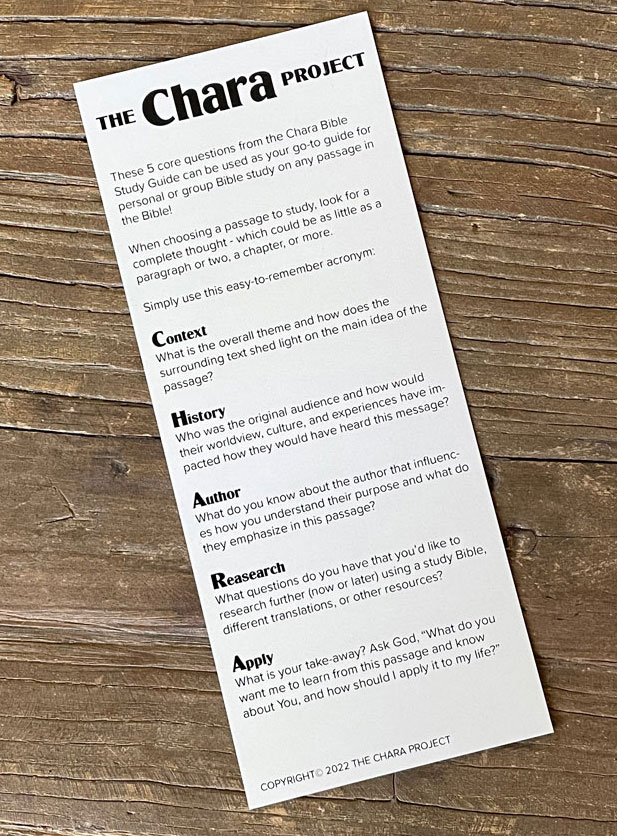“If you ask me anything in my name, I will do it.” (CSB)
Welcome to the Bible Study Guide for John 14:14, which leverages questions from the CHARA Bible Study Guide when studying this verse. Below are the questions the Chara team chose to ask, in the order they chose to ask them, but feel free to use other questions or change up the order as you dive into this passage. For ANSWERS from the Chara team on these questions, check out the video below.
RESEARCH
Observation & Questions: What questions do you have as you read this verse? Consider what questions you would like to research further. (For example: “Can we really ask God ANYTHING and get it?”)
CONTEXT
Immediate: What is the theme or main idea found in the surrounding paragraph(s)? What does Jesus communicate about the relationship between His disciples, Jesus and God the Father? Pay special attention to John 14:13, as CONTEXT is key to interpreting our verse. How does the immediate context help determine what John 14:14 means? (Hint: place yourself in the story by going back to John 13 to see where our passage takes place. Then make sure to read John 14:8-24.)
Connective Words: How are connective words in verse 13 (e.g. therefore, and, but, then or so that) used to develop a complete thought? When we ask something in Jesus’ name, what should be the outcome (vs 13)? (Hint: read multiple Bible translations to see what connective words you find.)
Book: Is the theme repeated throughout the book? How do these verses provide clarity on what John 14:14 is teaching? (Hint: Use cross references to help you out. Some verses you’ll find may include John 15:6-7)
Bible: Does my interpretation hold true throughout the rest of the Bible? Remember our KEY PRINCIPLE: The Bible cannot contradict itself. Your interpretation of a passage cannot be in conflict with what is clearly taught somewhere else in the Bible. When it comes to confusing or seemingly contradictory passages, let clear Scripture interpret unclear Scripture, by turning to passages that make it abundantly clear. (Hint: Again, use your Bible’s cross-references, which should lead you to include verses like 1 John 5:14-15 or Matthew 6:9-13)
HISTORY
What worldview, cultural, religious, political factors and experiences were a part of their world and how did that influence them? Check Study Bible notes and commentaries to see what you can learn about how Jewish tradition thought of asking for something “in his name” or consider doing a word study on “in the name” throughout your Bible to see how it’s used. For example, according to the IVP Bible Commentary, in ancient Judaism, Rabbis would often pass on traditions or teachings “in the name of” another rabbi as a way of teaching based on their authority. Additionally, the use of “in the name” means acting on someone’s behalf or being a representative. So when we hear ”ask in my name” – we’re tying the request to the person’s name we’re using. Which means we’re aligned to their thinking and desires.
RESEARCH
Resources: What additional insights do you learn from Biblical scholars provided in Study Bibles, commentaries, and credible online resources? For example, in Warren Wiersbe’s Bible Exposition Commentary he notes, “To know God’s name means to know His nature… God answers prayers in order to honor His name; therefore, prayer must be in His will.”
APPLY
Ask: What do you learn about God – His character, attributes, or desires?
Pray: “Lord, what do you want me to learn and how should I apply this to my life?”
Reflect: What specific questions do you have upon further reflection of the passage? Is there a verse that you’d like to memorize to speak truth to your heart and mind? (Hint: Consider John 15:7 or 1 John 5:14)


